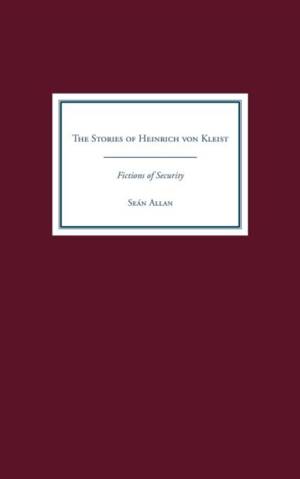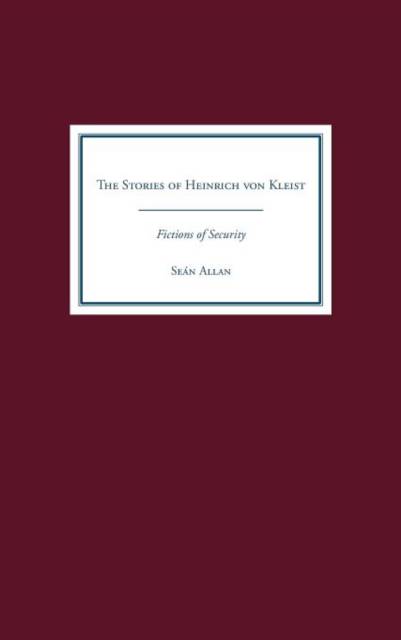
- Afhalen na 1 uur in een winkel met voorraad
- Gratis thuislevering in België vanaf € 30
- Ruim aanbod met 7 miljoen producten
- Afhalen na 1 uur in een winkel met voorraad
- Gratis thuislevering in België vanaf € 30
- Ruim aanbod met 7 miljoen producten
Zoeken
Omschrijving
The fascinating and controversial German writer of dramas and novellas Heinrich von Kleist (1777-1811) is one of the most interesting objects of analysis for scholars of German literature even today, nearly two centuries after his death by suicide. In recent years, disagreements among Kleist scholars have been so extreme that some have suggested that his work subverts the very process of interpretation. Seán Allan challenges this view and the related one of Kleist as a profound pessimist. He argues that the focus on Kleist's uninterpretability has obscured important elements of social criticism present in his "moral stories." To correct the widely-held view of Kleist as a "poet without a society," Allan approaches the stories via investigation of four thematic clusters: justice and revenge; revolution and social change; education and the nature of evil; and art and religion. Allan holds that the perspective endorsed by the Kleistian narrator is designed to reflect the assumptions and prejudices of the members of the dominant class of Kleist's time (authoritarian and male-dominated as it was), and finds that by the end of the stories it is precisely this perspective that has been profoundly called into question. Seán Allan is lecturer in German at the University of Warwick, UK.
Specificaties
Betrokkenen
- Auteur(s):
- Uitgeverij:
Inhoud
- Aantal bladzijden:
- 255
- Taal:
- Engels
- Reeks:
- Reeksnummer:
- nr. 1
Eigenschappen
- Productcode (EAN):
- 9781571132277
- Verschijningsdatum:
- 1/07/2001
- Uitvoering:
- Hardcover
- Formaat:
- Genaaid
- Afmetingen:
- 152 mm x 229 mm
- Gewicht:
- 544 g

Alleen bij Standaard Boekhandel
+ 354 punten op je klantenkaart van Standaard Boekhandel
Beoordelingen
We publiceren alleen reviews die voldoen aan de voorwaarden voor reviews. Bekijk onze voorwaarden voor reviews.







